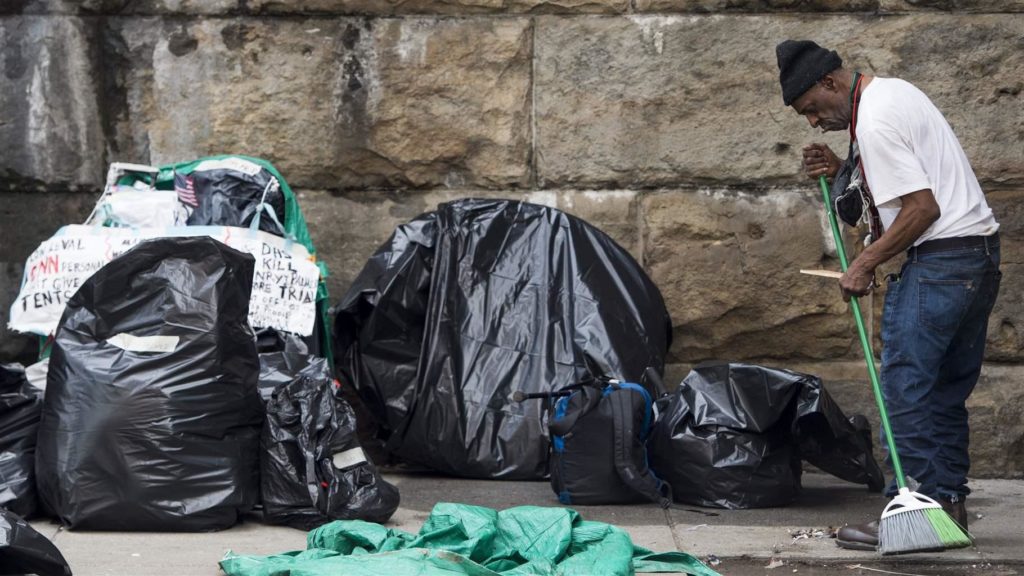
Expanding Access to Equitable Healthcare Career Education and Opportunities
Los Angeles County’s College of Nursing & Allied Health (CONAH) has prepared students for employment, professional development, and/or advancement for 125 years. Completing their clinical rotations in the system and often hailing from the area, graduates are particularly well placed to understand and address LA County’s healthcare needs. In the... Read more

Optimizing Case Management to Support the Resentencing of Over-incarcerated Individuals
The California Department of Corrections and Rehabilitation (CDCR) is responsible for the incarceration of nearly 100,000 adults, operating the second largest prison system in the United States. Los Angeles County (LA County) is the largest contributor to the carceral system in California – with nearly 30% of all adults admitted... Read more

Streamlining Workflows to Support the Release of Over-incarcerated Individuals
The California Department of Corrections and Rehabilitation (CDCR) is responsible for the incarceration of nearly 100,000 adults, operating the second largest prison system in the United States. Los Angeles County (LA County) is the largest contributor to the carceral system in California – with nearly 30% of all adults admitted... Read more

Combating the Digital Divide by Increasing Equitable Access to Broadband Services
The COVID-19 pandemic has exposed long-seated issues with connectivity in Texas, with almost 900,000 residents lacking broadband internet access across the state. In Central Texas, over 37,000 students are without the high-speed internet needed for online learning, and over 50,000 residents in Austin alone do not have use of the... Read more

Designing Small Business Supports to Strengthen Fort Worth’s Entrepreneurial Ecosystem
Small businesses and entrepreneurs, who comprise the heart of the American economy, continue to face challenges arising from the pandemic – predominantly minority-owned small businesses and entrepreneurs of color. Small businesses owned by people of color already face systemic barriers to accessing financing and business resources and are more likely... Read more

Dismantling Barriers to Homeownership Through Innovative Programs and Policies
For many Americans, the dream of owning a home – often considered the best way to build wealth in this country – is increasingly out of reach and unaffordable. In Kansas City, for many residents, this is the reality. While over 50% of Kansas City residents own their homes, there... Read more

Developing Equity-Centered Policies to Reduce Harmful Greenhouse Gas Emissions
The City of Kansas City, like many cities throughout the US, is experiencing the impacts of climate change like never before—through increased temperatures, increased periods of drought, and more frequent flooding. Kansas City generates 18 tons of greenhouse gasses per person (three times the world average). In the early 2000s,... Read more

Catalyzing Innovative Programs and Policy to Restore Food Sovereignty to Birmingham’s Residents
From James Beard award-winning restaurants to the vast Pepper Place Market, where people from across central Alabama convene on weekends to shop for locally grown fruits and vegetables, Birmingham is among the small cities favorited by food lovers and culinary experts across the nation. Unfortunately, not everyone in the city... Read more

Advancing Racial Equity in LA County’s Homeless Services System
Los Angeles County is celebrated for its diverse mix of nationalities, cultures, identities, and languages. This cultural richness is stifled by stark racial and socioeconomic inequities that manifest in disparities in health, economic mobility, housing, and homelessness—particularly for communities of color. Black/African American people made up 40% of the total... Read more

Building the Capacity of Critical Service Providers in Austin’s Homelessness Response System
In the City of Austin, homelessness is a persistent reality that has amounted to a humanitarian challenge. Lack of affordable housing and healthcare, trauma and abuse, and racial inequities are all leading causes of homelessness in Austin. An estimated 9,000 residents in the Austin/Travis County area experience homelessness each year,... Read more
